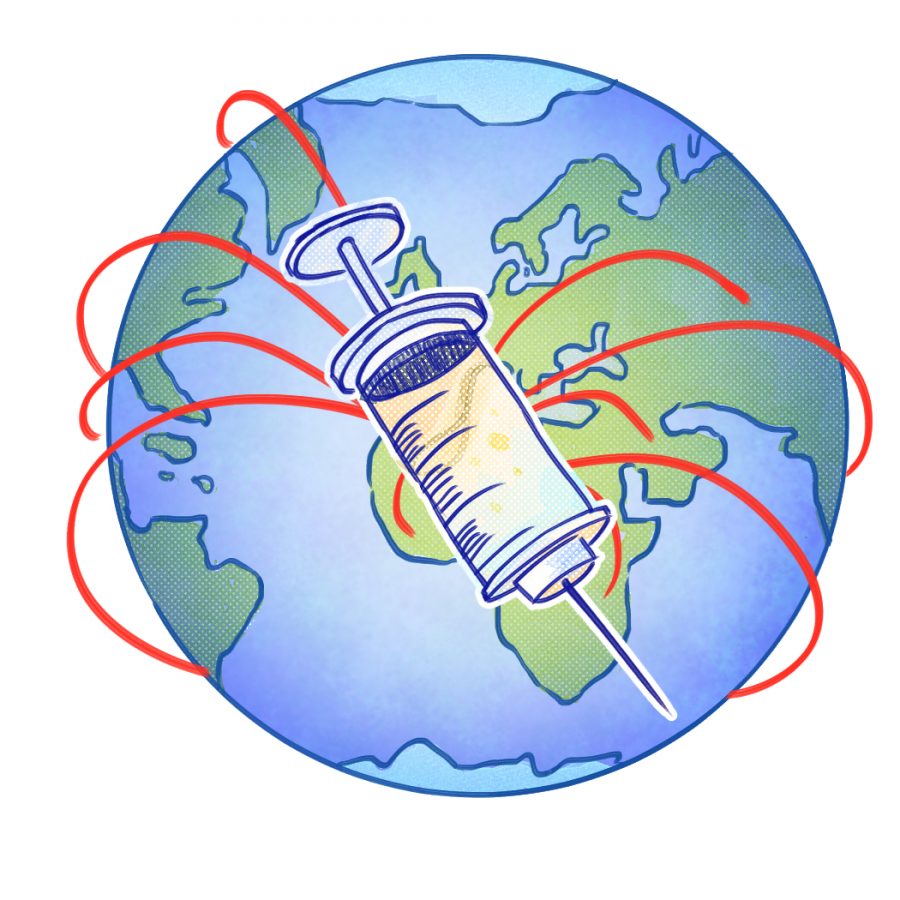UT students experience vaccine challenges across Europe
April 15, 2021
Editor’s Note: This article first appeared in the April 13 issue of The Daily Texan.
Every night at 7 p.m., Katie Berger must be inside her apartment in France. If she wants to leave the next morning outside a 10 kilometer radius, she has to fill out a government form explaining why.
“I see my friends (in Texas) just eating in a restaurant and sometimes get FOMO,” public relations and journalism junior Berger said.
Berger is studying abroad in Reims until May, where France has implemented a third nationwide lockdown. Other European countries, such as Germany and Belgium, also initiated lockdowns in response to the 1.2 million new COVID-19 cases reported across Europe in mid-March.
Whether they call Europe home or are just there for a semester, some UT students are navigating European vaccine rollouts.
The European Union has signed agreements with major vaccine companies to secure 2.6 billion doses, hoping 70% of all adults will be completely vaccinated by September. The EU allocates vaccines to each country, but vaccine distribution is determined by the member states.
Vaccine rollouts across the EU have been slow due to negotiation contracts, supply shortages and the temporary withdrawal of AstraZeneca rollout because of links to blood clots.
Berger said as of Monday, she is still not eligible to receive the vaccine, according to France’s rollout guidelines.
“None of my friends here have (the vaccine) because of the slow rollout,” Berger said. “It’s funny because everyone (in Europe) makes fun of America for everything except the vaccine rollout.”
She said she plans on making an appointment to receive her first dose the day she returns to Texas in May.
“I feel behind,” Berger said. “I see all my friends at UT getting their vaccines and I’m like, ‘Wait, I want one too. I want to be able to hang out with everybody (again).’”
Audrey Black, an international relations and global studies, government, and history junior, said she was lucky enough to be fully vaccinated before leaving for Barcelona in March. She received both doses of the Pfizer vaccine at UT.
“I’m the only person (I know) here that is vaccinated, like has any dose,” Black said. “I’m super thankful because it would be extra scary getting COVID-19 in a foreign country.”
Black said Spain is distributing vaccines based on province demand. Catalonia, the province where Barcelona is located, has one of the lowest rollouts because only 20% of residents are 65 years or older.
Plan II freshman Isabel Carey, who is from London, moved to Austin to attend UT in August. She received her first dose of the Pfizer COVID-19 vaccine Thursday 8 at Gregory Gym.
“I obviously didn’t want to jump in front of anyone who truly needed it, but given the opportunity, I wasn’t going to waste it,” Carey said. “The UK has a different system of doling it out to the population, and I’m in the lowest (priority) category, so I don’t know when I could get it.”
Carey said she will be traveling back to the UK to visit her family and friends in May and will be fully vaccinated by then.
Despite the battle against COVID-19, Berger and Black said they are thankful for their opportunity to study abroad, and Carey said she is grateful for how supportive the UT community has been.
“There have been a lot of ethical questions each country has had to deal with throughout the pandemic like who we prioritize first, which vaccine is the most effective, how we counterbalance the mental health crisis,” Carey said. “This is still a global pandemic. We are all undergoing the same struggles together.”












